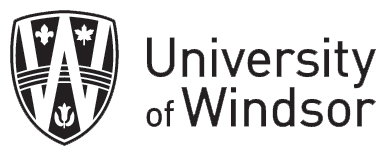Presentation Title
Youth in Toronto tell their stories about sport – Insights from a participatory approach to research
Location
Room 306, School of Social Work
Start Date
29-9-2018 2:15 PM
End Date
29-9-2018 3:45 PM
Presentation Types
Paper
Abstract
The Canadian government proclaimed 2015 to be The Year of Sport in Canada, stating that “sport plays a powerful role in enhancing the lives of Canadians of all ages” (Government of Canada, 2014). That same year, the Pan Am/Parapan Am Games in Toronto were promoted as “a once in a lifetime opportunity to positively affect a community, leave a legacy and grow in the process” (Toronto2015, 2015). In turn, the current Canadian Sport Policy states that sport is “a tool for social and economic development and the promotion of positive values at home and abroad” (Sport Canada, 2012, p. 8).
With these claims in mind, this presentation offers some initial insights from a participatory study designed to explore the ways in which young people living in Toronto make sense of sport, and whether (and/or how) sport connects to their everyday lives and contributes to their social development, broadly defined. Particular attention is paid to the ways in which Toronto youth who identify as people of colour describe these experiences. The initial results indicate that while sport is meaningful and important to Toronto youth, structures (both material and cultural) continue to preclude their full participation, or their engagement on their own terms. Some methodological implications of participatory research are also discussed. (This project is funded by an Early Researcher Award from the Ontario Ministry of Research, Innovation and Science.)
Bio Statement
Simon C. Darnell is an Assistant Professor in the Faculty of Kinesiology and Physical Education at the University of Toronto. His research focuses primarily on the relationship between sport and international development and peace building efforts, the development implications of sports mega-events, and the place of social activism in the culture of sport. He is the author of Sport for Development and Peace: A Critical Sociology (Bloomsbury Academic) and co-editor of Race and Sport in Canada: Intersecting Inequalities (Canadian Scholars’ Press).
Daniel Eisenkraft Klein is a Master’s student in the Faculty of Kinesiology and Physical Education at the University of Toronto. His research focuses on the policies and politics of youth sport provision in Toronto.
Robyn Smith is a Master’s student in the Faculty of Kinesiology and Physical Education at the University of Toronto. Her thesis project examines the place of sport and leisure within settlement services for Canadian newcomers.
Greg Yerashotis is a PhD candidate in the Faculty of Kinesiology and Physical Education at the University of Toronto. He examines youth sport in Toronto through the lenses of critical criminology and critical pedagogy.
Youth in Toronto tell their stories about sport – Insights from a participatory approach to research
Room 306, School of Social Work
The Canadian government proclaimed 2015 to be The Year of Sport in Canada, stating that “sport plays a powerful role in enhancing the lives of Canadians of all ages” (Government of Canada, 2014). That same year, the Pan Am/Parapan Am Games in Toronto were promoted as “a once in a lifetime opportunity to positively affect a community, leave a legacy and grow in the process” (Toronto2015, 2015). In turn, the current Canadian Sport Policy states that sport is “a tool for social and economic development and the promotion of positive values at home and abroad” (Sport Canada, 2012, p. 8).
With these claims in mind, this presentation offers some initial insights from a participatory study designed to explore the ways in which young people living in Toronto make sense of sport, and whether (and/or how) sport connects to their everyday lives and contributes to their social development, broadly defined. Particular attention is paid to the ways in which Toronto youth who identify as people of colour describe these experiences. The initial results indicate that while sport is meaningful and important to Toronto youth, structures (both material and cultural) continue to preclude their full participation, or their engagement on their own terms. Some methodological implications of participatory research are also discussed. (This project is funded by an Early Researcher Award from the Ontario Ministry of Research, Innovation and Science.)


